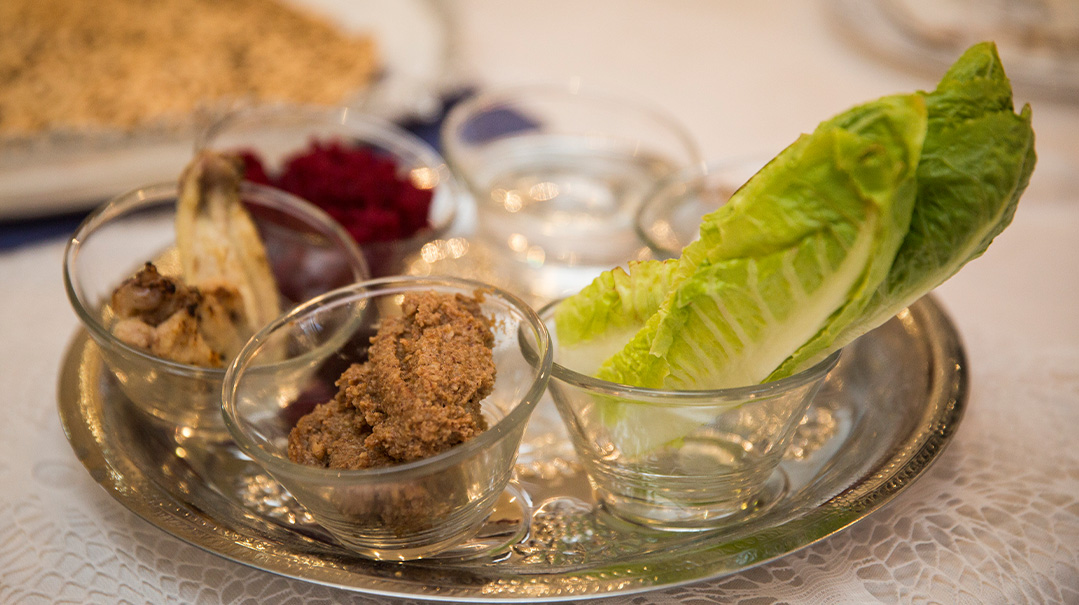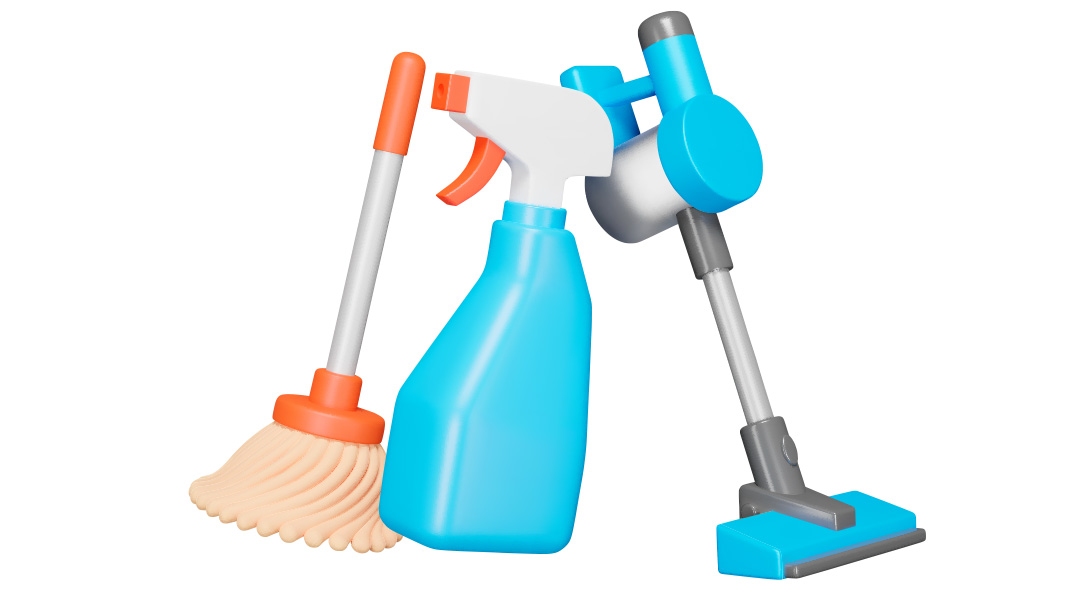Field of Faith
| August 31, 2021Would she still be a farmer's wife if they didn't work the farm?

Omer couldn’t hear Noa over the rumble of his tractor. “Hi!” she tried again. She held a tray with two glasses on it against her side and waved her free arm to catch his attention.
Finally, he squinted in her direction and killed the engine.
It took a minute for him to lift out of the seat and hoist himself down the side of the tall yellow beast. There was a time, many decades and children — and grandchildren — earlier, when Omer could get off the seat in a single leap. “Here.” Noa handed Omer one of the glasses from her tray and took the second for herself. They leaned against the tractor, and the sweet, cold limonana cut through the beams of heat that had burrowed into the field.
“How’s your day going?” Noa asked her husband.
“It’s good,” Omer said. But his eyes were locked into the distance. The day was usually good, even if the work was hard. “I’m tired though.”
Noa followed his gaze, taking in the land before them. The uneven ground, covered in greenery grown from toil, stretched for acres. “I know.”
Omer took off his cap to wipe the sweat from his brow. “I want to take a break,” he said.
“Do you want to come inside?” she asked, already knowing the answer.
“Not that kind of break,” Omer said. He turned to catch Noa’s eyes and gestured to the fields. “I want to stop all this — for a while.” Noa said nothing, so Omer continued as he had these past few days. “I want to keep shemittah.”
Tension settled into Noa’s shoulders. Shemittah? Thirty years of marriage and Omer had never mentioned the mitzvah. Which self-sufficient farmer did that? She dug her steel-toed boots into the uneven ground. “I want a break too,” she said. “But shemittah? Why?”
“We’re not as young as we used to be,” Omer said. “When I go up there —” he pointed to the sun-filled sky, “I want to have a merit standing with me.”
They were getting older, but everyone was. “We can light candles on Friday nights,” Noa offered.
No, no. Omer shook his head. “We're farmers. This is our mitzvah.”
For a long moment, the two continued to lean against the tractor, squinting in the sunlight. “When do we need to decide?” Noa asked.
“If we keep farming, I need to start preparing for the new season next month.” Omer twisted the strings of his bucket hat around his fingers.
“If we're doing this, we need to decide soon.”
Back in the house, Noa pulled one of Omer’s sun-bleached flannels from the mending basket. Where was the hole that needed fixing? She turned it over and over until she found the small rip.
It was good this hole was on the seam. The straight line was simple to sew. She pushed her needle and thread through the fabric, in and out, in and out. Some things were easy to fix.
Omer had been wearing flannels for as long as Noa knew him. The first time the two met was on her father’s farm when the young Omer was hired to help for the sowing season. Noa had watched the way the broad-shouldered man worked from sunrise to sunset, how polite he was when he came indoors for meals and decided then, This is the kind of man I want to marry.
Noa knotted the last stitch and bit on the thread to cut it. With a tiny snap, it broke.
Why couldn’t Omer decide to wear a kippah instead? That, Noa could handle. “They hide the bald spots,” she laughed when Gali had stressed about her own husband’s new shtick of the year. The farmers’ wives chuckled and teased, but none truly minded. People age. They go from tanned young men to wrinkled middle-aged ones. People get tired. Sometimes they change.
But how much could a person change until they’re someone else entirely? Sure, shemittah was a farmer’s mitzvah — but what if you didn’t survive the year? Then you weren’t anyone.
Noa folded the shirt and tucked it back into the wicker basket. She couldn’t think about it anymore, not when there was always more work to do.
She abandoned the mending for her office. There was still an afghan draped over the back of her desk chair from the hours she spent balancing the farm’s accounts in the cooler months.
Back when the kids were little, after she’d put them to bed, Noa often fell asleep in this chair, her eyes drooping as she ran a finger back and forth against the line of each invoice. She’d check each number and verify each statement. A mistake of even 500 shekels was worth a lot to them.
Noa ripped a paper from a notebook and began to take notes.
The farm brought in thousands each year, but by the time they paid for the workers, the mortgage, the machinery, and the emergencies, they weren’t rich. That was never the goal, though: They worked to turn dust into sustenance so they could support their small family and live to see another year.
Groceries, house repairs, utility bills. All she could see was red numbers. Surely Omer would see the sense in that — there was no way they could take the year off.
At six thirty, like clockwork, Omer walked in from the field. The bang, bang of him on the front porch, knocking dirt from his boots, always announced his arrival before his deep “Shalom” did. Noa was ready for him in the kitchen.
She spooned the beans and chicken onto Omer’s plate.
“How was your day?”
It was good, he said. The harvest was going according to schedule, and at this rate, they’d be finished with more than enough time to turn over the land before the new year — that is, if they planned to continue farming during the new year.
“We can’t afford a year’s break,” Noa said. She grabbed the small notebook from the counter and showed him the lists.
Omer leaned back in his chair, but instead of looking at the numbers, he looked around the small room. There were cracks in the paint, but it still held to the walls. The floor creaked when you stepped on it too heavily, but they never worried that it would collapse. The farmhouse was home.
On the wall, just under the chicken-shaped clock Omer bought Noa for her 50th birthday, was a framed photo of their four kids. All were out of the house now. Their oldest, Moshiko, was an engineer in Tel Aviv; Meira and her husband Ron were raising their children in Teveria; Hallel had just started university; and their youngest, Tzachi, was stationed in Chevron.
“If we close the farm, what will we live off of?” Noa continued.
“I don’t know,” Omer said. “How did we do it until now?”
Noa wondered, looking once again at the picture of their grinning children. How had they paid for new sneakers the year that the seeds grew mold? How had they sent their kids off with shiny new school supplies when the rainy season had come late?
She remembered the late nights spent with a red pen in hand as she ran the numbers again, and again, and again. Then she would retire with wordless prayers, and hope that the numbers would change by morning. They often did. There’d be a crop that yielded more than they expected, or a vendor who gave them a good deal on fertilizer. Still, the money didn’t appear from nowhere. They worked hard to nurture the crops and relationships that kept them going.
“How did we do it?” Noa asked.
Omer took her silence as an opening. “Mi shema’amin margish,” he said. He who believes feels it.
That hadn’t been what Noa had meant at all.
This too shall pass, Noa hoped, like so many of Omer’s other grand plans.
When the kids were little, Omer wanted to open a petting zoo on their land. Noa thought it was a horrible idea. Why bring strangers to trip through their grass and ruin their beautiful fields? She had nodded when Omer waxed about it each night, and by the time a month passed, he’d dropped the idea entirely.
This too shall pass, she told herself — a promise more than a plea.
Noa stood at the storybook window above the kitchen sink, preparing to wash the glasses.
We work hard for our livelihood.
And they work hard for this view. She couldn’t imagine a life where the lush green land was not in the backdrop.
Noa pulled the shade down and turned on the faucet. The full force of the hot water hit her skin, and she jumped back — shouldn’t she have known, after all this time, how fast the pipes warmed in summer?
The glass slipped from her hand and hit the tiled floor. Hundreds of tiny shards scattered throughout her kitchen.
I can’t do this.
Then Noa pulled up a wooden chair, rested her head in her hands, and cried.
When the sun spilled into the bedroom the next morning, Noa was relieved to see Omer already gone. Good. She didn’t have to discuss the dreaded idea right then. She’d overslept. And on grocery day, no less.
Echoes of her conversations hummed in her head the entire drive down to town.
…Shemittah…
…I’m tired…
…We’re farmers…
…Our mitzvah…
Their friends were also farmers — and none of them felt this way. Noa pulled up in front of the shop and cut the ignition on her truck; the engine turned off with a dying rumble. She grabbed her basket and walked to the front door of the shop, and scanned the bins lining the entryway. Zucchini, tomatoes, onions… Each had a sign stuck inside — the name of the farm where it was grown and the name of the farmer who had grown it, all of whom Noa and Omer knew personally.
I have to tell Vered that her tomatoes look divine, Noa noted. After the heavy rains that spring, her friend had been so worried about blossom-end rot killing the crop. Noa was glad their plants had grown robust instead. She took a few and headed inside.
These aisles are where she’d found her tribe. Omer bought the farm during their first year of marriage, and Noa has been homesick and lonely. She missed the hills of her father’s fields, where she knew which trees gave the most shade and which ways the wind blew — and the people who lived nearby whom she’d known all her life.
Then Omer took the tractor to the mechanic and heard that the farmer who owned the orchard a mile south also owned a small grocery store, run by his wife, Gali. This was where the farmers’ wives gathered. Noa had walked in a few days later, hiding behind her large sunhat. When Gali saw her, she’d gotten out of her chair behind the register and leaned over to give Noa a kiss on each cheek.
“You must be the new farmer’s wife,” she’d said, then introduced Noa to the gaggle of women sipping small cups of thick Turkish coffee around the checkout counter. Noa looked at them with their bright, easy smiles, and she knew: She was going to be okay.
Thirty years later, it was Noa who showed the young wives around. It was Noa who taught them how to cook with wild ramson, explained what to do when a child was scared at night, and taught them how to stuff the frames of old farm windows so they kept the winter’s cold at bay.
Will I still be welcome here if we keep shemittah? Noa wondered. Would she still be a farmer’s wife if they didn’t work the farm? Walking into the shop felt like a betrayal, and all she and Omer had done was talk.
Inside, Liat leaned on the counter, chatting with Gali.
“Boker tov,” Gali greeted her.
“Boker or,” Noa smiled back. “How’s Dudi doing?”
“Good, good. He’s working too many hours and not letting me hire more people to help on the farm, but you know our men. Proud and strong. They never need anyone else’s help.”
Noa laughed and nodded. Their husbands were all the same.
Except… Omer wants to stop for shemittah.
“Can I leave these up here?” she asked, showing the vine-ripe tomatoes in her hands. “I don’t want them to get squashed in my basket.”
“Of course.”
Noa turned into the first aisle, and there, near the newspaper-wrapped eggs and jugs of fresh milk, she bumped into Vered.
“Vered, your tomatoes look incredible. I took some to use for dinner tonight.”
Vered brushed off the compliment, but her eyes gave away her pride in her crop. “Ah yes, a farmer would know.” She shook one of the milk jugs to see how thick the cream was. Noa fell into step next to her, inspecting eggs for cracks.
“Although, I’ve been meaning to ask….” Vered turned to Noa, an eyebrow raised. “What’s this I hear about you and Omer keeping shemittah?”
“Hmm?” Noa’s fingers closed around an egg and the speckled shell splintered in her hand. Goopy yolk ran through her fingers, but Vered continued talking.
“Gidon mentioned that Omer was thinking about it, but I told him there’s no way. We all know you, Omer and his big ideas. Remember the petting zoo? And then there was the time he wanted to convert the milk shed and rent it out to tourists? I told my husband this is another one of Omer’s crazy ideas, so he shouldn’t worry. You would never agree.”
Noa felt a flutter in her chest. Was it humiliation or was it pride?
“It’s not a crazy idea,” she said. In truth, the idea was — but Omer wasn’t. “It’s actually happening. Omer and I are keeping shemittah this year.”
Noa tried to pull back the words, but it was too late. There each one stood, echoing in the small shop, which was now completely silent.
Vered took a step back. “What do you mean?”
“I mean that we’re keeping shemittah.”
There was no other sound in the room. No more rustle of plastic as a shopper filled her bag with cucumbers. No more clang of metal on metal as another sorted through the canned goods.
“Really?” Vered asked. “You’re really going to let it all go and be like those people who think they can just rely on miracles?”
Noa straightened her shoulders and met Vered’s gaze. She debated whether to mention the tomatoes, a crop that pulled through despite Vered’s firm belief that it would fail. She could mention other unexpected bumper crops, fertilizer deals, and unexpected weather changes, all the lucky turns that helped each farmer bear their load.
“We all rely on miracles,” she answered plainly. There was nothing to discuss, she realized. What Omer said was true. Mi shema’amin margish. And those who don’t, well they attempt to connect the dots on their own. Then Noa wiped up the last of the cracked egg from her skirt, paid Gali for some milk, and walked out of the shop. She chose not to remember that she’d left the bundle of Vered’s tomatoes sitting on the counter.
When Noa returned home, she flew into her desk chair, the last shreds of the dignity she’d worn in the shop giving way to frantic energy.
Every year, she sat here to prepare for the new season, to budget and plan for the winter. But this year, when the new season came, the fields changed colors, her husband changed his mind, and so did she. Now the numbers had changed values.
The calculations weren’t a question of profit margins and income now. It was a question of debt, and how long they could live in it.
They were going to keep shemittah. But how?
Noa opened her notebook and began a list. There was the mortgage on the farm, the lease on the tractor, the loan they took out to cover another hired hand this season. None of these payments could lapse. Or they could, but then she and Omer might lose the farm.
Then she started another list. The cost of groceries, electricity, treats for the grandkids. She bit her lip and crossed the last item out. That was an extra, something they would have to do without.
The lines became blurry, and her handwriting began to falter. It was hard for Noa to find the break between one item on her list and another. They were a giant mess of scary numbers, none of which they would be able to afford. How do people do this every seven years?
Noa pulled the fluttering shade aside and stared at the fields in front of her. The trees stood tall, proud old soldiers guarding the edge of her field. She heard the whistle before she saw its motion: The trees bent to make room for the wind. They swayed in the breeze and then, when it passed, they stood tall again.
Maybe she and Omer could do that too.
Mi shema’amin margish. Her husband’s faith echoed through her, strengthening her resolve.
They had relied on miracles before. They would be okay.
The door to her office nook creaked open. Omer was standing there, holding a few dog-eared envelopes — it must have been the day’s mail. He put them on her desk, and she slowly opened them all.
An invitation to Liat’s son’s bar mitzvah. A crayon-drawn picture from Meira’s eldest; Noa stuck those to a corkboard with a pin and a smile.
A reminder that the land lease was due soon.
“How was your day?” he asked as she opened the last.
“Good,” Noa answered and asked about his. She heard that the sun was hot and the tractor was acting up again — but that it was a good day on the farm.
“Remember how many times I fell asleep here?” she asked.
Omer moved to sit on the chair next to her. “Yes, when the kids were little.”
“That was a long time ago.”
“They were good times, too,” he said, smiling.
Noa nodded. “I’m getting old.”
“Gam ani.” Omer laughed. “We’re getting old together.”
“We need to enjoy the good days in the field, our last farming season for more than a year.”
Omer’s easy smile shifted to a look of surprise. “Mah pitom? We’re keeping shemittah? What changed your mind?”
For the first time all day, Noa laughed. “That’s a story for another time,” she said. “But I ran the numbers. Again.”
“And?” Omer kept his eyes on her, bracing for the answer.
“It’s a lot….” Noa said. “But Hashem ya’azor.”
Omer raised his eyes to the sky. Noa’s gaze followed his, then she nodded. “He always does.”
Every following day, Noa looked at the dwindling groceries in her pantry and prayed that Hashem would send an early miracle — that the groceries would last forever. Anything to keep her from going to Gali’s shop.
“You can drive to Yesh,” Omer suggested.
Noa shook her head. “I always shop at Gali’s.” That’s what the farmers’ wives did.
Her husband’s eyes twinkled. “Unless you go, you don’t actually shop anywhere at all.”
“Fine,” she said, chuckling as she grabbed her truck keys. “I’ll go.”
But once she pulled into the dirt lot outside the shop, Noa stayed behind the seat. She watched Gali putter behind the counter at a distance, the open door and the windshield of the truck separating them.
After a long moment, Noa stepped down from the driver’s seat and headed inside.
“Boker tov,” Gali greeted her.
“Boker or,” Noa replied.
“I was waiting for you to come back.”
“I didn’t know if I would,” Noa admitted.
“Why not?” Gali asked, baffled.
Noa was about to respond, but she stopped when she realized Vered was there too.
“Noa,” she exclaimed. “It’s been a while.” Noa nodded in greeting. “I’m glad you’re here.”
“Yes, we are,” Gali echoed, as she leaned across the counter and patted Noa’s hand.
“Nu, what’s the menu this week?” Vered asked.
And as though there was no difference to divide them, the farmer’s wives fell back into familiar conversations.
In the waning hours before the new year began, Noa shifted through the pile of clean laundry, looking for Omer’s white linen shirt, the one he’d wear to shul when the new year came. There were no holes to fix, but there were plenty of creases to iron.
Over and over, she smoothed out the linen lines. When the shirt was crisp, she lay it down on Omer’s bed.
Hours later, Noa walked to her storybook window, overlooking the farm she loved, and struck a match. One, two, three, she waved her hands. Then she covered her eyes, turned heavenward, and prayed.
She was ready for the new year.
(Originally featured in Family First, Issue 758)
Oops! We could not locate your form.







